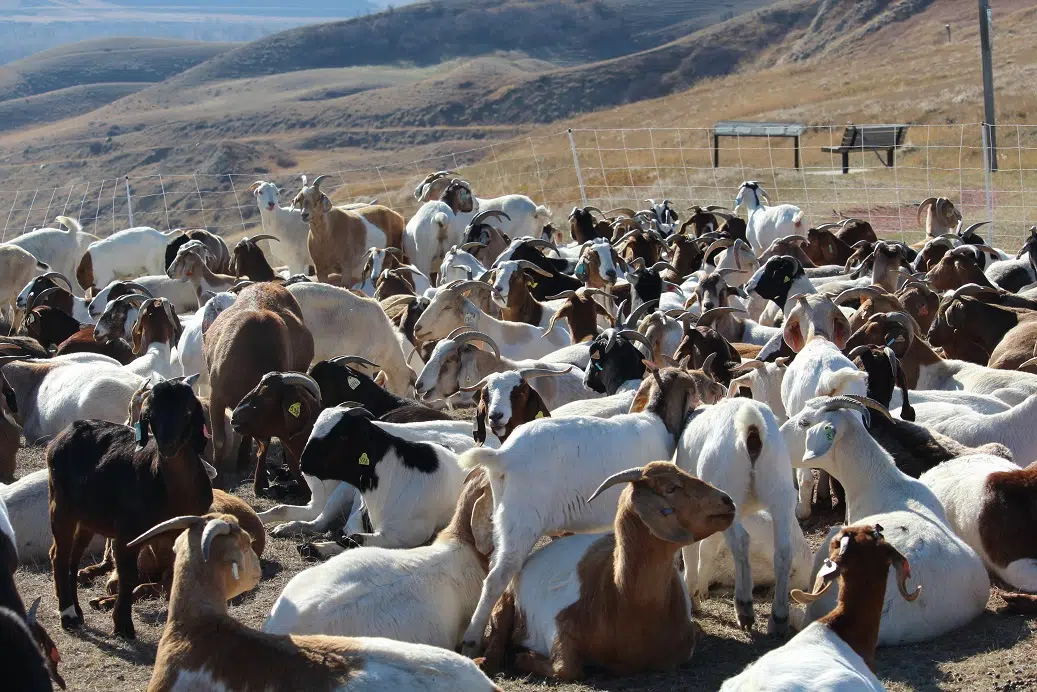
City of Lethbridge enlisting the help of goats to deal with grass and vegetation control
LETHBRIDGE – When you think of goats, perhaps your first thought isn’t how effective they can be in clearing problem vegetation around public areas.
But that’s exactly what made them enticing for the City of Lethbridge.
They will be testing the use of goats this fall to manage vegetation around paths in Cottonwood Park that can’t be mechanically mowed.
This is a pilot project to determine if an ongoing program in the river valley is feasible next year.


